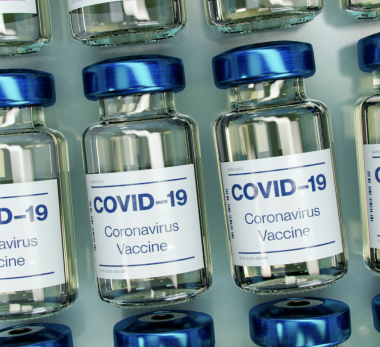Covid-19 vaccine patents should be waived - Christian Aid

Christian Aid is calling for an international debt cancellation deal to help African nations vaccinate their people and effectively tackle Covid-19.
In a new paper, 'Vaccine Debts', the NGO warned of a "triple whammy" facing the poorest countries, with rising needs produced by the pandemic coming at the same time as falling revenues and a mushrooming debt burden.
All of this is happening, the paper further warns, at a time when climate change is presenting additional challenges to the continent.
In the face of the continued threat from Covid, the paper says that vaccine patents should be waived so that developing countries can boost production in an affordable way and tackle the virus without adding to existing debt burdens.
By introducing a debt cancellation deal agreed by the G20, the vaccine roll-out could be accelerated, bringing the world closer to universal health coverage against the virus, Christian Aid said.
There have been over 164 million Covid-19 cases worldwide, and over three million deaths, but Christian Aid estimates that the pandemic has also pushed at least 150 million people into extreme poverty.
At the same time, the pandemic has exacerbated hardships for those who were already in poverty before the outbreak.
While developed nations have made strides with their vaccine roll-outs, many developing countries have been left behind, with Africa accounting for only 2% of vaccine doses administered worldwide despite being home to 14% of the world's population.
Christian Aid condemned vaccine hoarding by wealthy nations as it warned that a two-speed recovery could lead to a "lost decade" for Africa.
Christian Aid's head of global advocacy and policy, Fionna Smyth, said: "Covid-19 and climate change are complex crises requiring globally coordinated action.
"Wealthier countries have a responsibility both to support crisis prevention measures - Covid-19 vaccines, and climate mitigation and renewable energy - and curative measures, such as health systems or climate adaptation.
"A solidarity approach is in the self-interest of rich, as well as poor – decisive action and adequate investment now will reduce long-term costs, whilst saving lives and livelihoods."
She added: "A just recovery from this crisis depends on G20 countries and the International Financial Institutions living up to their global responsibilities, and resolving the debt crisis in a decisive and durable way."











